How Often Should I Service My Air Conditioner?
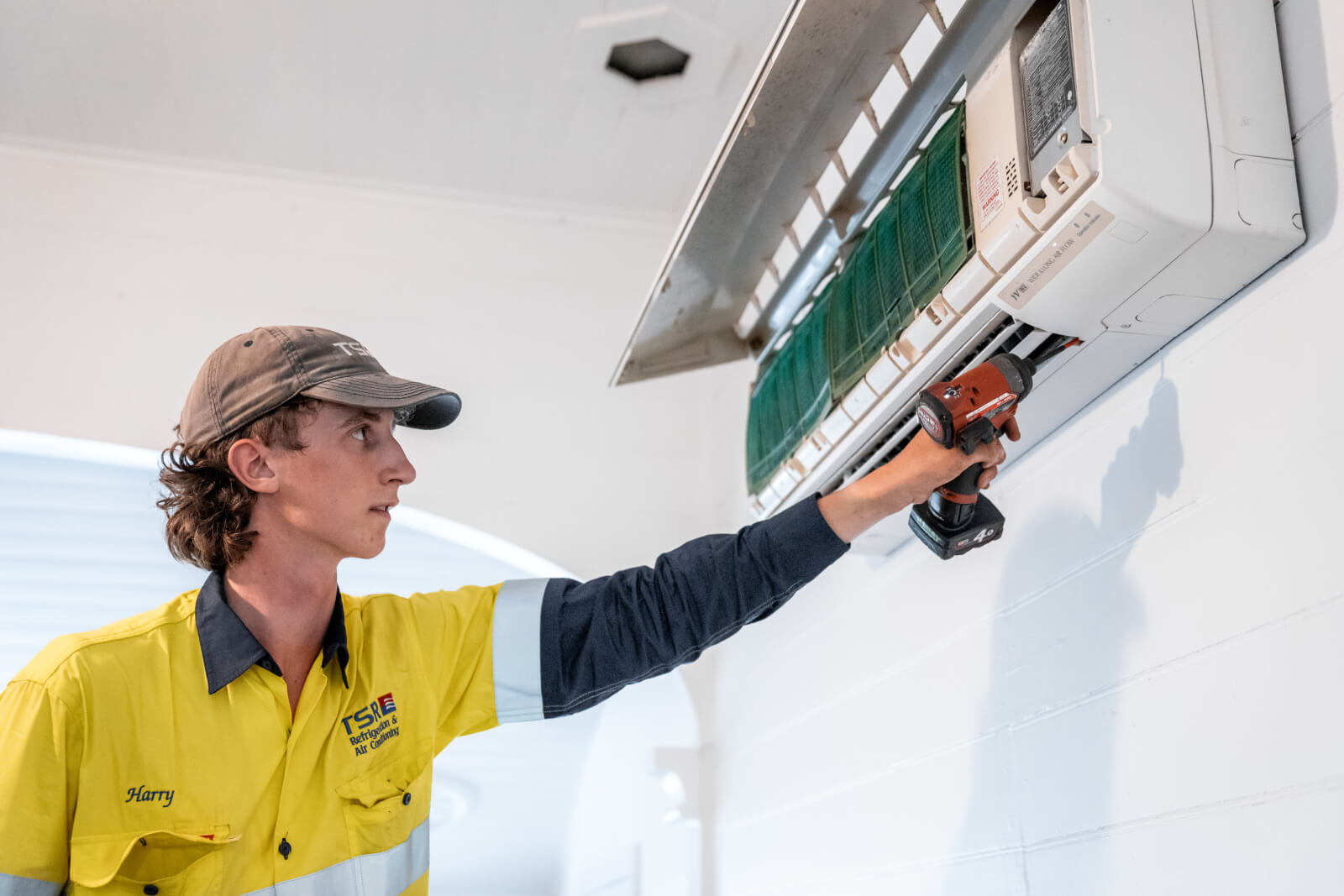
Most homeowners and businesses should schedule professional air con service every 12 months, though specific circumstances may require more frequent attention. Understanding how often you should service your air conditioner depends on several factors including usage patterns, environmental conditions, and system type.
Regular air conditioning maintenance isn’t just something your local air conditioning experts say to drum up business. It’s essential for keeping your system running efficiently and your energy bills under control – that’s something we can all relate to as living costs increase in Australia.
So, how often should you service your air conditioner? After 35 years serving the Gympie and Wide Bay regions, we’re sharing how frequently your AC needs maintenance and how a proper maintenance schedule can extend your AC system’s life by decades. It also prevents costly, inconvenient breakdowns during our sweltering summers and brutal winters – right when you need your air con working the most.
The Standard Air Conditioning Service Schedule
The rule of thumb for air conditioning maintenance is annual servicing for residential properties and bi-annual checks for commercial installations. This schedule can shift based on your specific situation and local conditions.
Household systems usually need professional attention once yearly, ideally before peak summer season hits. Commercial properties often need service every six months. Business usage demands are higher – the critical nature of precise climate control to keep your doors open means skipping a schedule isn’t a good move.
Split systems and ducted units follow similar maintenance timelines, though ducted systems may need more frequent filter changes due to their larger air circulation volumes. Heat pumps need particular attention to both heating and cooling components during their respective service visits.
Signs Your Air Conditioner Needs Immediate Service
Certain warning signs signal that your system requires immediate professional attention. Recognising these early saves you money and prevents frustrating breakdowns.
Strange noises like grinding, squealing, or banging suggest internal component problems that won’t resolve themselves. Reduced cooling capacity, unusual odours, or visible ice formation on outdoor units usually point to issues requiring expert diagnosis.
Water leaks around indoor units, frequently cycling on and off, or dramatically increased energy bills all point to underlying problems. When we recently serviced a Hervey Bay office building, the facility manager had ignored these warning signs for months, resulting in a complete compressor failure that could have been prevented with timely intervention.
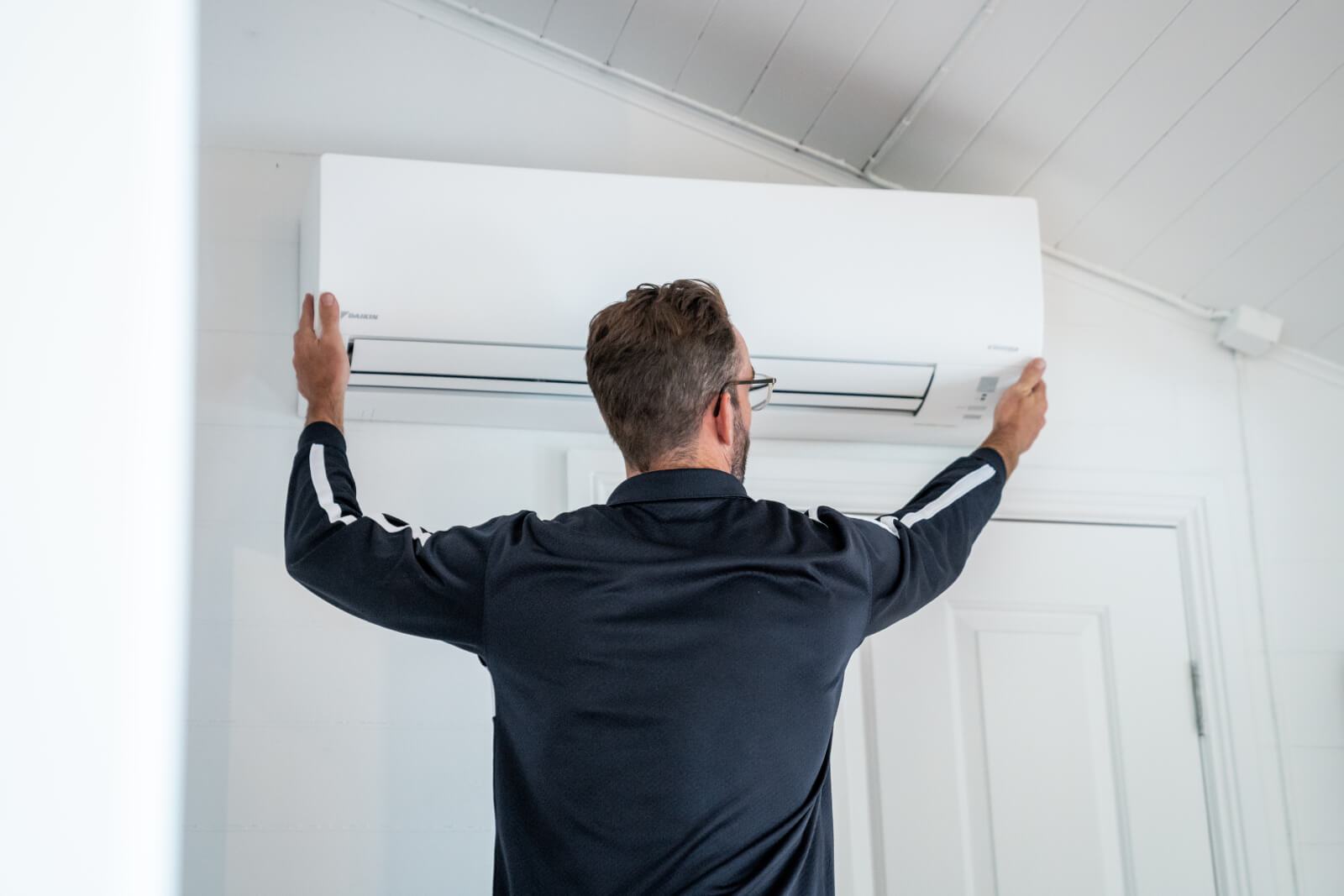
Factors That Increase Service Frequency
Some situations mean your air conditioner will need attention more than once a year. Living near the coast or running your system heavily can put extra strain on the equipment.
If you’re running a busy shop, medical practice, or factory, your system works harder and may need checking every few months. Properties near the beach cop more salt in the air, which can cause rust problems. Rural homes often deal with more dust and particles from farming that block up filters quicker.
Got pets? Their hair and dander build up faster in the system, so you might need more regular clean-outs. If you’re renovating or there’s construction nearby, all that extra dust means your system needs more attention to keep running smoothly.
Benefits of Regular Air Conditioning Maintenance
Regular maintenance saves you money in the long run. A well-looked-after system runs more efficiently, which means lower power bills.
Professional service and maintenance stop small problems from turning into big, expensive ones. It’s cheaper to fix a minor issue during a routine service than to wait for something major to break down in the middle of summer.
Your air conditioner will also last longer when it’s properly maintained. Think of it like servicing your car – regular attention keeps everything running smoothly for years longer than if you just run it into the ground.
Clean systems also mean cleaner air in your home or workplace. The filters and coils do a better job of catching dust, pollen, and other nasties when they’re not clogged up. This makes a real difference for anyone with allergies or breathing issues.
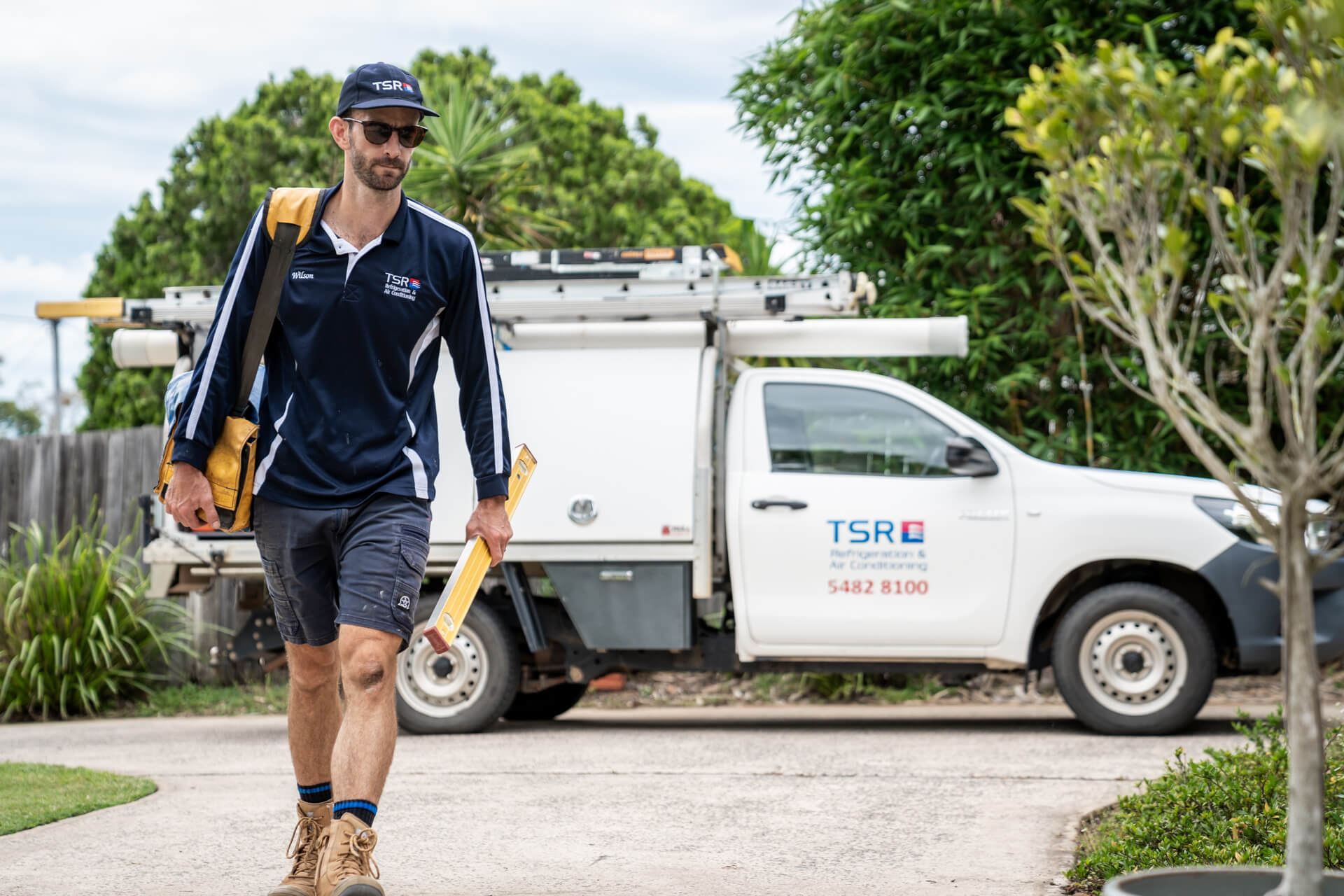
What Professional Air Con Service Includes
Comprehensive air conditioning service is more than simple filter replacement. Professional technicians perform detailed system inspections that identify potential problems before they cause failures.
Our service process includes refrigerant level checks, electrical connection inspections, and thorough cleaning of coils and drainage systems. We test thermostat calibration, examine fan motors, and verify proper airflow throughout the system.
Advanced diagnostic tools help identify efficiency issues invisible to untrained eyes. Thermal imaging cameras detect hot spots in electrical components, while pressure gauges ensure refrigerant systems operate within manufacturer specifications.
Trust Your Local Air Con Service Experts
Quality air conditioning service requires experienced professionals who understand local conditions and system requirements. We bring over three decades of expertise to every service call, using cutting-edge diagnostic tools and genuine replacement parts and can create a maintenance schedule that suits you.
As a family-owned business serving the Wide Bay and South Burnett regions, we understand the unique challenges our Queensland climate presents to your air con systems. Our 24-hour service commitment ensures you’re never left without climate control when you need it most. Get in touch to book your service today.
Don’t wait for your air conditioner to fail during the next heatwave. Contact us today to schedule your maintenance service and experience the difference professional service makes for your comfort and peace of mind.
Please Share This
Related Posts
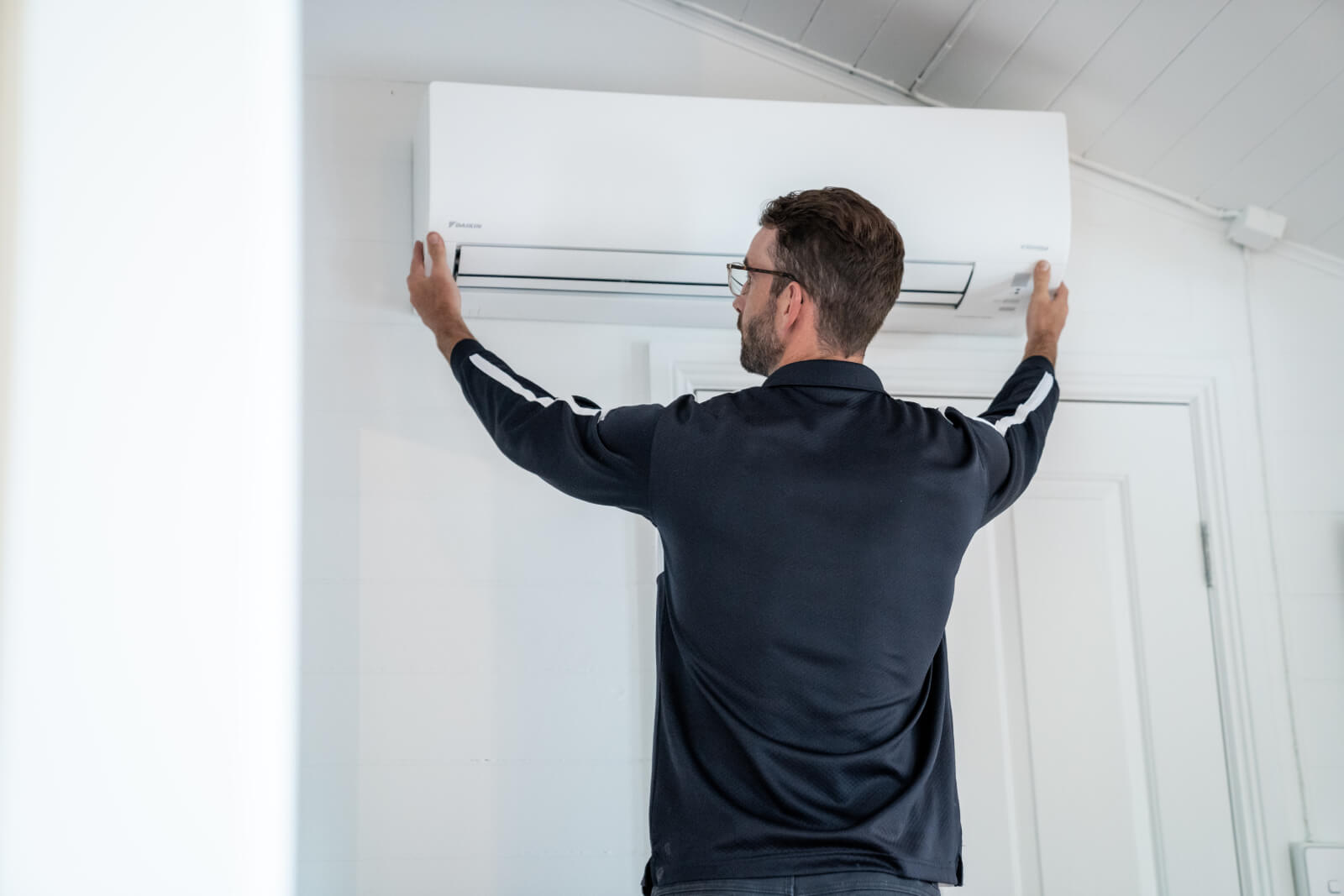
Top Reasons Your Air Con Isn’t Blowing Cold Air and How to Fix It
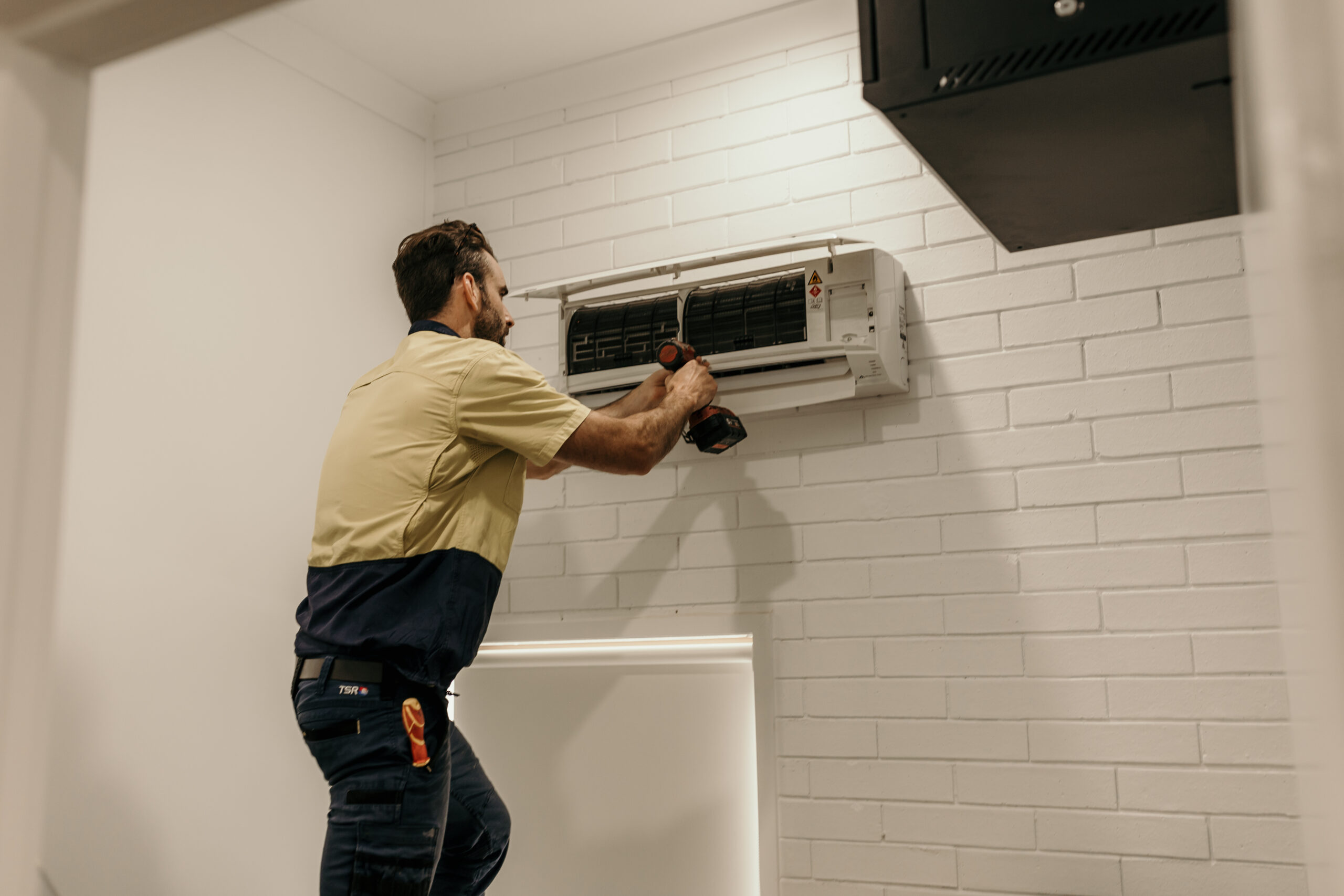
Has Your Air Con Stopped Working In Peak Heat? Here’s What To Do

